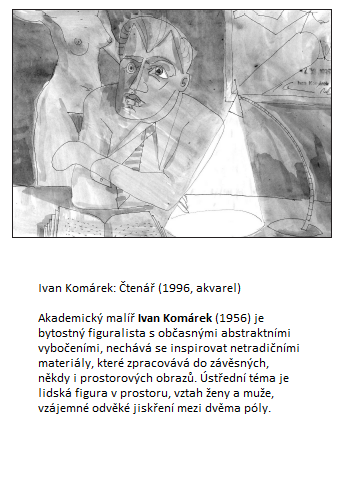Otázka pro... Wolfa Schmida
1. Narrative is made narrative by what is represented. Narrativity implies a temporal sequence representing changes of – interior or exterior – state. A state is to be understood as a set of properties which refer to an agent or to the external situation at a particular point in time. Wherever changes of state are represented we have to do with narrative. So the concept of narrativity is not limited to verbal arts or to literature in a broad sense but includes wide ranges of culture and science. Narrativity is therefore not congruent with literarinesse. It refers to all media, provided they are able to represent temporal processes. The fictionality problem is not seminal for narrativity.
2. Most of the so called “new” narratologies don’t imply really new narratological theories but are rather mere applications of some partial classical narratological concepts to different fields of culture and science. In some cases those applications are inspired by certain ideological motives. They deserve to be called narratological only insofar as they imply a clear concept of what it means to be narrative.
3. Narratalogy can have a broad impact on our understanding of the world. Let me give an example. One of the central concepts of recent narratology is eventfulness formulated by J. Lotman. An event is a special type of change of state that presupposes some criteria among them relevance and unpredictability of the change of state. Eventfulness is a scalable property of events and a hermeneutic, subject-dependent and context-sensitive category indicative of interpretation. Eventfulness as a culture-specific and historically un stable phenomenon of narrative repre sentation is therefore a major tool for the investigation of cul tural typology and the history of literature and thought: it raises ques tions that can guide our exploration of the historically changing possibilities and limitations of eventfulness and the concepts of event fulness that are associated with specific historical periods.
Wolf Schmid, Universität Hamburg
Předchozí:
Otázka pro... Uriho Margolina: Russian Formalism, Cognitive Poetics and Art as an Institution
Otázka pro... Holta Meyera: Uncanny Narratives of the Present


